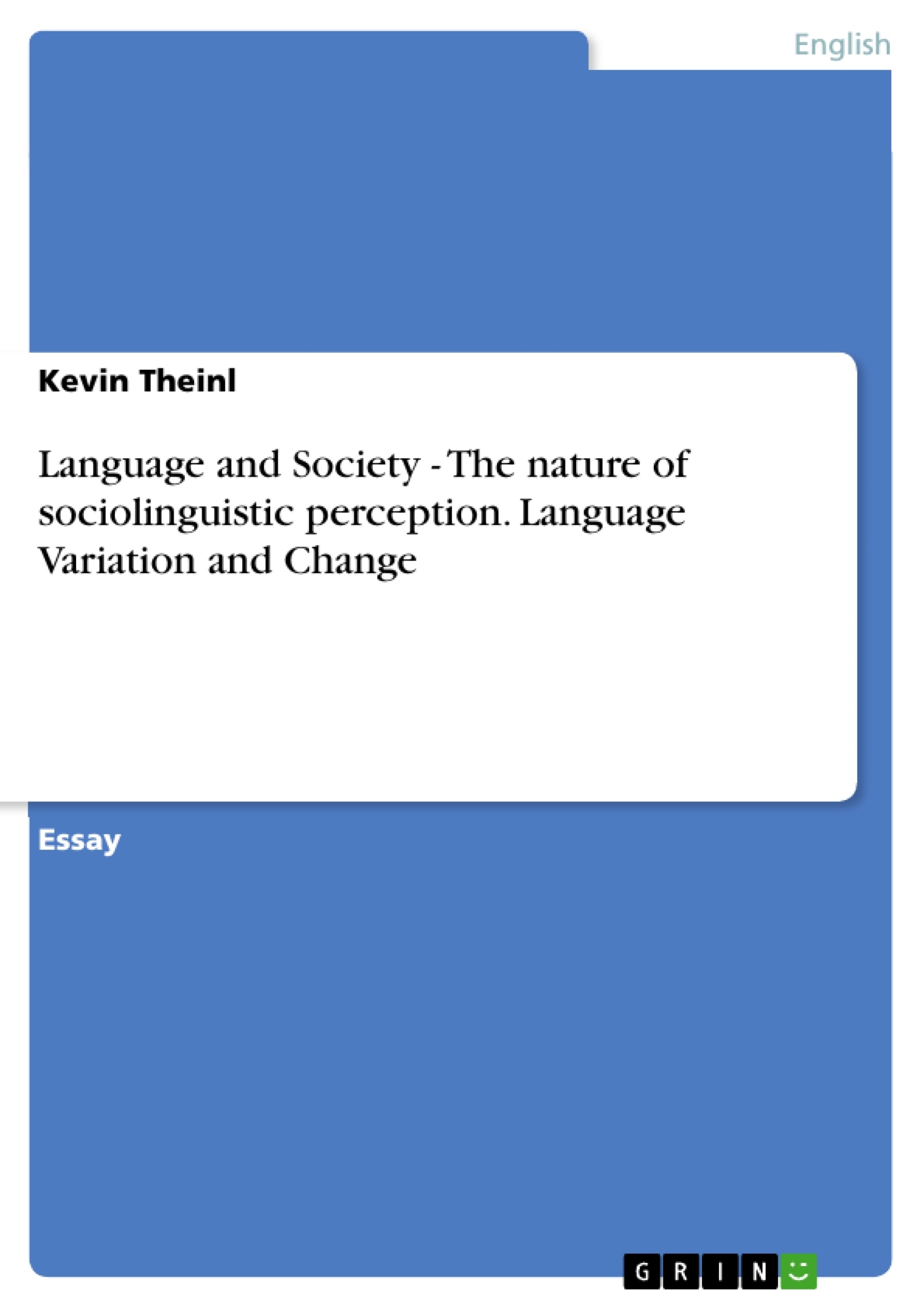This paper deals with the social meaning of language, social categorization and covert reaction. It also goes into detail with the question if the use of the variable ING is linked to a perception of the speaker as intelligent or educated. Furthermore it will be discussed if the indexical field is a useful tool for understanding the use of a variable like –ING and its social interpretation. Afterwards the methods and results of Campbell-Kibler’s study are portrayed which include a discussion of the indexical field.
Inhaltsverzeichnis (Table of Contents)
- Introduction
- Social meaning of language
- Social categorization
- Matched guise technique
- Main Part
- How the use of the variable ING is linked to a perception of the speaker as intelligent/ educated
- Other perceptions of speakers using -in instead of -ing
- Why is the -in variable associated with easy-going/ younger speaker and –ing with a more intelligent/credible/ older speaker
- What is the indexical field and why is it a useful tool for understanding the relation between the use of a variable like –ING and its social interpretation?
Zielsetzung und Themenschwerpunkte (Objectives and Key Themes)
This paper explores the social significance of language variation and specifically investigates the relationship between the use of the variable ING and social perception. It examines how different pronunciations of -ING can influence listeners' perceptions of a speaker's intelligence, education, age, and social class.
- The social meaning of language and how it shapes perceptions of individuals and groups.
- The role of social categorization in interpreting linguistic variation.
- The matched guise technique as a tool for understanding how listeners perceive speakers based on their linguistic features.
- The indexical field as a framework for analyzing the complex interplay between linguistic variation and social meaning.
- The connection between the use of the variable ING and perceptions of intelligence, education, age, and social class.
Zusammenfassung der Kapitel (Chapter Summaries)
The introduction provides an overview of sociolinguistics, outlining how language behavior reflects social behavior and influences people's perceptions of groups and events. It also discusses social categorization and its potential pitfalls and introduces the matched guise technique, a method used to study how listeners interpret linguistic variation.
The main part of the paper focuses on the study by Campbell-Kibler, analyzing how the use of the variable ING is linked to perceptions of intelligence and education. The study involved speakers and listeners from different regions of the USA, and its results highlight how the use of -ing can be associated with perceptions of education and intelligence, but only for a subset of speaker/listener pairs. The study also examines other perceptions linked to the use of -in instead of -ing, such as perceptions of accents, social class, and age.
Schlüsselwörter (Keywords)
Sociolinguistics, language variation, social perception, matched guise technique, indexical field, variable ING, social categorization, regional differences, education, intelligence, age, social class, accents.
Frequently Asked Questions
How does language variation affect social perception?
Linguistic features, such as the pronunciation of the variable -ING, act as social markers that influence how listeners categorize a speaker's intelligence, education, and class.
Is the use of -ing linked to perceived intelligence?
Yes, studies like Campbell-Kibler’s show that speakers using the full -ing ending are often perceived as more intelligent, educated, and older compared to those using the -in variant.
What is the "matched guise technique"?
It is a sociolinguistic research method where listeners evaluate the same speaker using different linguistic varieties to isolate the effect of language on perception.
What is an "indexical field"?
The indexical field is a tool used to understand the constellation of social meanings associated with a linguistic variable, such as being "easy-going," "educated," or "articulate."
Do regional differences matter in sociolinguistic perception?
Yes, the perception of variables like -ING can vary significantly depending on the regional background of both the speaker and the listener.
- Citation du texte
- Kevin Theinl (Auteur), 2010, Language and Society - The nature of sociolinguistic perception. Language Variation and Change, Munich, GRIN Verlag, https://www.grin.com/document/179372



